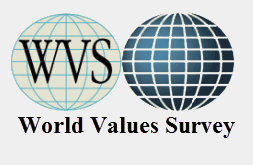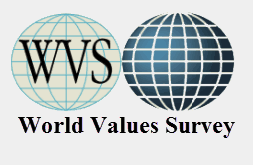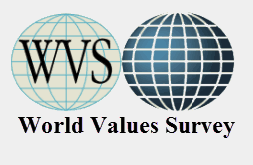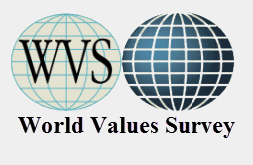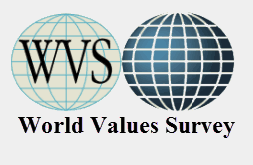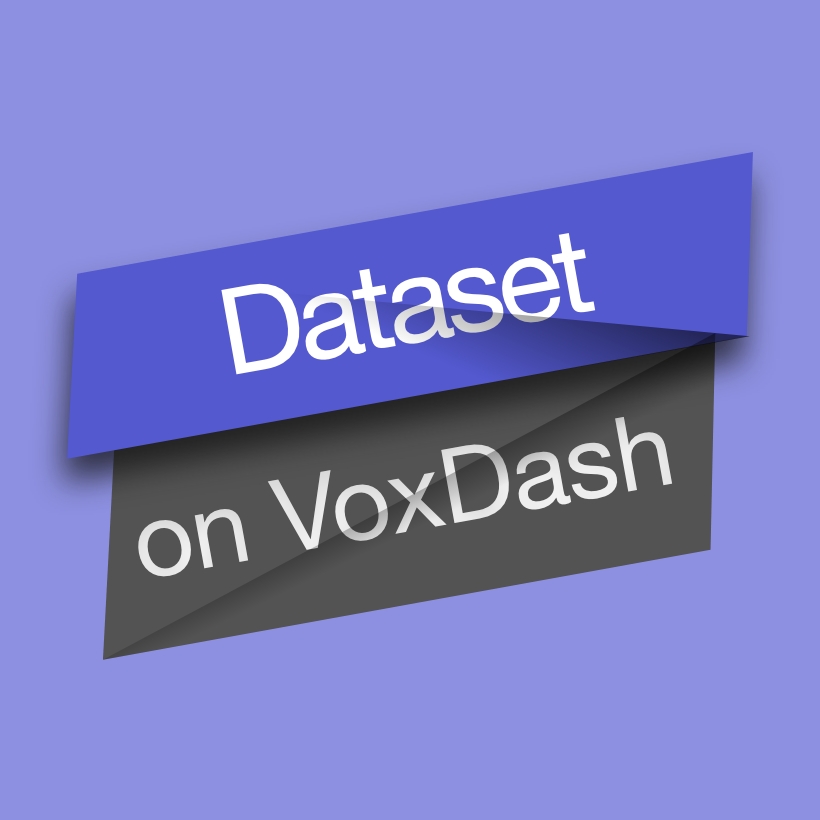Filter By
Data Projects
 Region:
Region:World, Miller projection, ultra high resolution
 Collection Date:
Collection Date:1995-01-01
The World Values Survey is a global network of social scientists studying changing values and their impact on social and political life, led by an international team of scholars, with the WVS association and secretariat headquartered in Stockholm, Sweden. The survey, which started in 1981, seeks to use the most rigorous, high-quality research designs in each country. The WVS consists of nationally representative surveys conducted in almost 100 countries which contain almost 90 percent of the world’s population, using a common questionnaire. The WVS is the largest non-commercial, cross-national, time series investigation of human beliefs and values ever executed, currently including interviews with almost 400,000 respondents. Moreover the WVS is the only academic study covering the full range of global variations, from very poor to very rich countries, in all of the world’s major cultural zones. The WVS seeks to help scientists and policy makers understand changes in the beliefs, values and motivations of people throughout the world. Thousands of political scientists, sociologists, social psychologists, anthropologists and economists have used these data to analyze such topics as economic development, democratization, religion, gender equality, social capital, and subjective well-being. These data have also been widely used by government officials, journalists and students, and groups at the World Bank have analyzed the linkages between cultural factors and economic development.
 Region:
Region:World, Miller projection, ultra high resolution
 Collection Date:
Collection Date:1990-01-01
The World Values Survey is a global network of social scientists studying changing values and their impact on social and political life, led by an international team of scholars, with the WVS association and secretariat headquartered in Stockholm, Sweden. The survey, which started in 1981, seeks to use the most rigorous, high-quality research designs in each country. The WVS consists of nationally representative surveys conducted in almost 100 countries which contain almost 90 percent of the world’s population, using a common questionnaire. The WVS is the largest non-commercial, cross-national, time series investigation of human beliefs and values ever executed, currently including interviews with almost 400,000 respondents. Moreover the WVS is the only academic study covering the full range of global variations, from very poor to very rich countries, in all of the world’s major cultural zones. The WVS seeks to help scientists and policy makers understand changes in the beliefs, values and motivations of people throughout the world. Thousands of political scientists, sociologists, social psychologists, anthropologists and economists have used these data to analyze such topics as economic development, democratization, religion, gender equality, social capital, and subjective well-being. These data have also been widely used by government officials, journalists and students, and groups at the World Bank have analyzed the linkages between cultural factors and economic development.
 Region:
Region:World, Miller projection, ultra high resolution
 Collection Date:
Collection Date:1981-01-01
The World Values Survey (www.worldvaluessurvey.org) is a global network of social scientists studying changing values and their impact on social and political life, led by an international team of scholars, with the WVS association and secretariat headquartered in Stockholm, Sweden. The survey, which started in 1981, seeks to use the most rigorous, high-quality research designs in each country. The WVS consists of nationally representative surveys conducted in almost 100 countries which contain almost 90 percent of the world’s population, using a common questionnaire. The WVS is the largest non-commercial, cross-national, time series investigation of human beliefs and values ever executed, currently including interviews with almost 400,000 respondents. Moreover the WVS is the only academic study covering the full range of global variations, from very poor to very rich countries, in all of the world’s major cultural zones. The WVS seeks to help scientists and policy makers understand changes in the beliefs, values and motivations of people throughout the world. Thousands of political scientists, sociologists, social psychologists, anthropologists and economists have used these data to analyze such topics as economic development, democratization, religion, gender equality, social capital, and subjective well-being. These data have also been widely used by government officials, journalists and students, and groups at the World Bank have analyzed the linkages between cultural factors and economic development.
 Region:
Region:World, Miller projection, ultra high resolution
 Collection Date:
Collection Date:1999-01-01
The World Values Survey (www.worldvaluessurvey.org) is a global network of social scientists studying changing values and their impact on social and political life, led by an international team of scholars, with the WVS association and secretariat headquartered in Stockholm, Sweden. The survey, which started in 1981, seeks to use the most rigorous, high-quality research designs in each country. The WVS consists of nationally representative surveys conducted in almost 100 countries which contain almost 90 percent of the world’s population, using a common questionnaire. The WVS is the largest non-commercial, cross-national, time series investigation of human beliefs and values ever executed, currently including interviews with almost 400,000 respondents. Moreover the WVS is the only academic study covering the full range of global variations, from very poor to very rich countries, in all of the world’s major cultural zones. The WVS seeks to help scientists and policy makers understand changes in the beliefs, values and motivations of people throughout the world. Thousands of political scientists, sociologists, social psychologists, anthropologists and economists have used these data to analyze such topics as economic development, democratization, religion, gender equality, social capital, and subjective well-being. These data have also been widely used by government officials, journalists and students, and groups at the World Bank have analyzed the linkages between cultural factors and economic development.
 Region:
Region:World, Miller projection, ultra high resolution
 Collection Date:
Collection Date:2017-01-01
The World Values Survey (www.worldvaluessurvey.org) is a global network of social scientists studying changing values and their impact on social and political life, led by an international team of scholars, with the WVS association and secretariat headquartered in Stockholm, Sweden. The survey, which started in 1981, seeks to use the most rigorous, high-quality research designs in each country. The WVS consists of nationally representative surveys conducted in almost 100 countries which contain almost 90 percent of the world’s population, using a common questionnaire. The WVS is the largest non-commercial, cross-national, time series investigation of human beliefs and values ever executed, currently including interviews with almost 400,000 respondents. Moreover the WVS is the only academic study covering the full range of global variations, from very poor to very rich countries, in all of the world’s major cultural zones. The WVS seeks to help scientists and policy makers understand changes in the beliefs, values and motivations of people throughout the world. Thousands of political scientists, sociologists, social psychologists, anthropologists and economists have used these data to analyze such topics as economic development, democratization, religion, gender equality, social capital, and subjective well-being. These data have also been widely used by government officials, journalists and students, and groups at the World Bank have analyzed the linkages between cultural factors and economic development.
 Region:
Region:Germany, United States of America
 Collection Date:
Collection Date:2019-07-01
The purpose of this study is to understand, compare, and contrast professional experiences, perceptions, and beliefs among personnel in academic libraries in the USA and in Germany, which may inform future library and librarian collaborations between the two countries. Notable findings include differences in: respondents’ professional backgrounds; services offered by, and perceived adequacy and support of, respondents’ libraries; and views of the library profession and its future.
This is an anonymous cross-sectional e-survey of UK doctors from Janaury to March 2024 on their views on AI in healtcare. The survey contained five sections, demographics, use of AI, concerns about AI, requirements for introduction of AI, and views on necessary AI regulation in healthcare. The use of AI, concerns about AI, requirements for introduction of AI, and views on necessary AI regulation questions were developed based on a review of the literature and informal discussions with a number of doctors. The response options for the questions in these sections are all 5-point Likert scales from ‘strongly disagree’ to ‘strongly agree’.
 Region:
Region:Austria, Belgium, Bulgaria, Croatia, Cyprus, Czech Republic, Estonia, Finland, France, Germany, Greece, Hungary, Iceland, Ireland, Israel, Italy, Latvia, Lithuania, Montenegro, Netherlands, Norway, Poland, Portugal, Serbia, Slovakia, Slovenia, Spain, Sweden, Switzerland, United Kingdom, Macedonia
 Collection Date:
Collection Date:2020-09-18
The European Social Survey (ESS) is an academically driven cross-national survey, founded in 2001. It has been administered in 40 countries to date. Its three aims are, firstly – to monitor and interpret changing public attitudes and values within Europe and to investigate how they interact with Europe's changing institutions, secondly – to advance and consolidate improved methods of cross-national survey measurement in Europe and beyond, and thirdly – to develop a series of European social indicators, including attitudinal indicators. The survey involves strict random probability sampling, high response rate and rigorous translation protocols. ESS data collection is based on an hour-long face-to-face interview. Due to the impact of the COVID-19 pandemic at Round 10, a total of 9 countries switched to a self-completion (web and paper) approach, while 22 countries used ESS’s usual face-to-face fieldwork approach. In addition, countries opting for the usual face-to-face approach, could use video interviews as a back-up for the in-person interviews. Caution is advised when making comparisons between countries using face-to-face and self-completion approaches at ESS Round 10, and when making time series comparisons in a country that has used a self-completion approach at Round 10. Another impact of the pandemic was that Round 10 fieldwork was carried out over a longer period than a usual ESS Round. The first country started fieldwork in September 2020 and the final countries finished fieldwork in August 2022. The pandemic may have resulted in some attitudinal and behavioural changes; therefore, the timing of fieldwork may be particularly important at this round. Users are encouraged to review the fieldwork dates for countries and consider this when carrying out analysis between Round 10 participating countries, or when comparing country level results at Round 10 with previous ESS rounds.
 Region:
Region:Cambodia, Ecuador, Guatemala, Honduras, Paraguay, Senegal, Zambia
 Collection Date:
Collection Date:2016-11-14
There are five main data files: the student-questionnaire data file (which also includes estimates of student performance and parent-questionnaire data), the school-questionnaire data file, the teacher-questionnaire data file, the cognitive item data file and a file with questionnaire timing data. These files include countries/economies/subregions that fully met adjudication criteria. An additional data file contains the data for countries with adjudication issues (see note on additional data files below for a list of countries with adjudication issues).
 Region:
Region:Cambodia, Ecuador, Guatemala, Honduras, Paraguay, Senegal, Zambia
 Collection Date:
Collection Date:2016-11-14
There are five main data files: the student-questionnaire data file (which also includes estimates of student performance and parent-questionnaire data), the school-questionnaire data file, the teacher-questionnaire data file, the cognitive item data file and a file with questionnaire timing data. These files include countries/economies/subregions that fully met adjudication criteria. An additional data file contains the data for countries with adjudication issues (see note on additional data files below for a list of countries with adjudication issues).

